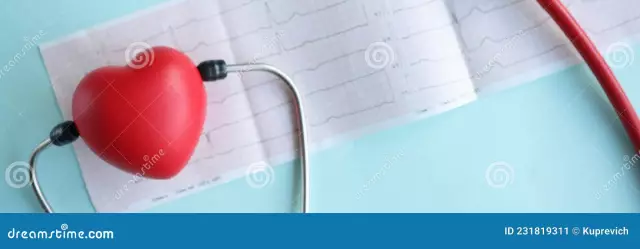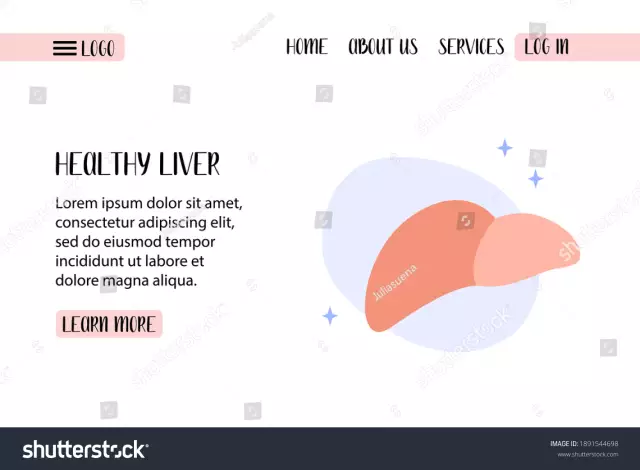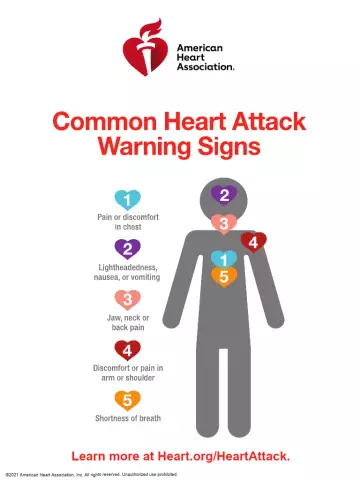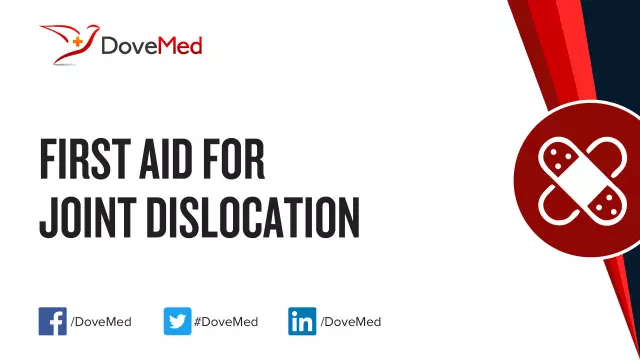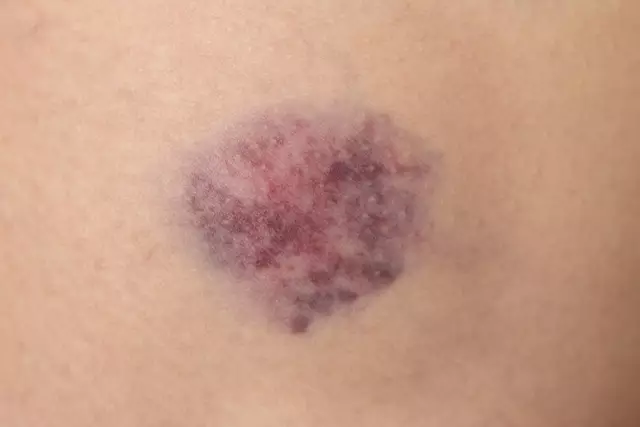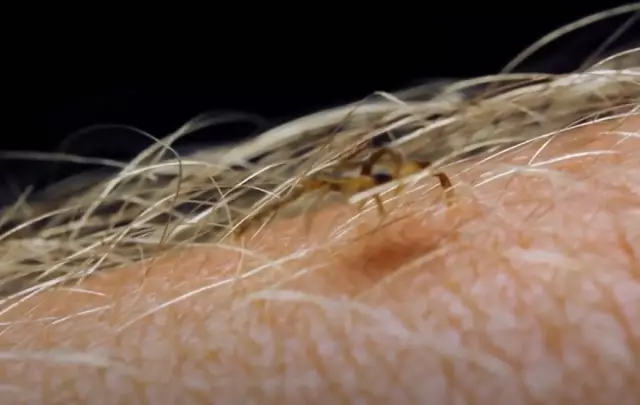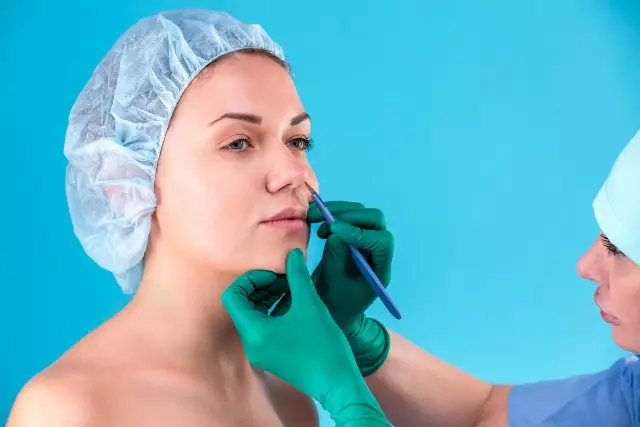Medical terms
Last modified: 2025-11-02 20:11
Infectious diseases - detailed information on methods of prevention and treatment
Last modified: 2025-11-02 20:11
Cardiology - a description of diseases of the cardiovascular system, modern methods of their diagnosis and treatment
Last modified: 2025-11-02 20:11
Gynecology is a branch of medicine that deals with the problems of the female reproductive system. Gynecology is what precedes pediatrics, every woman needs to remember this
Last modified: 2025-11-02 20:11
Hepatology is a section of gastroenterology dedicated to the liver. The area of consideration of hepatology includes metabolic diseases of the liver and biliary tract, oncological diseases
Last modified: 2025-11-02 20:11
Myocardial infarction is an emergency that occurs due to an acute violation of the blood supply to the heart muscle
Last modified: 2025-11-02 20:11
Dislocation is a stable displacement of the articular ends of the bones, as a result of which the joint ceases to perform its function
Last modified: 2025-11-02 20:11
A bruise is a closed injury to tissues without violating their integrity. Contusion refers to minor and moderate injuries and, as a rule, in such cases, first aid is sufficient, although there may be exceptions
Last modified: 2025-11-02 20:11
Snuff is a dried and shredded tobacco leaf that is consumed by inhaling a small amount through the nose
Last modified: 2025-11-02 20:11
Smoking pills - medicines used to get rid of nicotine addiction
Last modified: 2025-11-02 20:11
Nasvay is a type of smokeless tobacco product traditional for Central and Central Asia
Last modified: 2025-11-02 20:11
The danger of ticks is that these blood-sucking insects are carriers of many infections, both bacterial and viral, among which the most dangerous are hemorrhagic fevers, encephalitis and borreliosis
Last modified: 2025-11-02 20:11
Secondhand smoke is inhalation of air containing tobacco smoke by a non-smoker
Last modified: 2025-11-02 20:11
Vitamin B9 or folic acid is essential for the full development of the body, circulatory and immune systems. Its deficiency is undesirable for pregnant women
Last modified: 2025-11-02 20:11
Vitamin B - a group of 11 vitamins that are involved in all cellular processes in the human body
Last modified: 2025-11-02 20:11
Vitamin B5 is a water-soluble vitamin (aka calcium pantothenate or pantothenic acid). Takes part in the metabolism of amino acids, fats and carbohydrates
Last modified: 2025-11-02 20:11
Intimate plastic is a type of plastic surgery, the purpose of which is to correct defects and eliminate physical defects of the genitals
Last modified: 2025-11-02 20:11
Liposuction is a cosmetic plastic surgery aimed at removing fat deposits by surgery
Last modified: 2025-11-02 20:11
Lip plastics - injection or surgery to correct the shape of the lips
Last modified: 2025-11-02 20:11
Rhinoplasty is a surgery performed to correct defects in the nose
Last modified: 2025-11-02 20:11
Crises in family relationships are quite common. If everything is not going smoothly in your family life, you first need to decide for yourself, do you really want to save your marriage?
Last modified: 2025-11-02 20:11
Comprehension of the emotional state of another person, the ability to imagine oneself in his place, to understand his feelings, desires, ideas and actions is called empathy
Last modified: 2025-11-02 20:11
Character formation begins in early childhood. This process is influenced not only by life experience, but also by your own worldview and belief
Last modified: 2025-11-02 20:11
Nonconformism is disagreement or active rejection of everything generally accepted, for example, established order, values, traditions or laws
Last modified: 2025-11-02 20:11
Automatism (Greek automates spontaneous, self-acting) - the ability of individual cells, tissues or organs to rhythmic activity in the absence of obvious connections with external stimuli
Last modified: 2025-11-02 20:11
Adaptation (lat.adaptatio - adaptation) - the process of adaptation of an organism, population or other biological system to changing conditions of existence (functioning)
Last modified: 2025-11-02 20:11
Adenocytes (adenocyti; Greek adenos, aden - gland + hist.cytus - cell) - glandular cells located in the anterior lobe of the pituitary gland
Last modified: 2025-11-02 20:11
Adrenergic receptors (lat.adrenalis - adrenal; lat.ad- - at + ren - kidney + receptor - receiving; synonym: adrenergic receptors, adrenoreactive structures, adrenoreactive systems) - biochemical structures of cells that interact with adrenergic mediators (dopamine, adrenaline, noradrenaline ) and convert the energy of this interaction into the energy of a specific effect (muscle contraction, nerve impulse)
Last modified: 2025-11-02 20:11
Nitrogen (Nitrogenium; N; Greek a - negative part + zoe - life) is a chemical element of group V of the periodic system of D. I. Mendeleev with an atomic mass (weight) of 14.007; atomic number - 7. In living organisms, nitrogen is part of proteins and their derivatives. In molecular form (N2), it is a gas that makes up 78% of the volume of the earth's atmosphere
Last modified: 2025-11-02 20:11
Azotemia (azotaeimia; Greek a- - negative part + zoe - life + Greek haima - blood; synonym: hyperazotemia) - excess content of nitrogen-containing protein metabolism products in the blood
Last modified: 2025-11-02 20:11
Eye accommodation (accomodatio oculi; lat. accomodatio - adaptation, adaptation) is a physiological process characterized by changes in the refractive power of the eye during visual perception of objects located at different distances from it
Last modified: 2025-11-02 20:11
Acrodermatitis (acrodermatitis; Greek akros - the most distant, extreme, high + derma (dermatos) - skin + Latin it (word-form suffix) - inflammatory process) - the general name of a group of dermatoses with an exclusive or predominant lesion of the distal extremities
Last modified: 2025-11-02 20:11
Acropigmentation (acropigmentatio; Greek akros - the most distant, extreme, high + Latin pigmentum - paint; synonym: acromelanosis) - hyperpigmentation of the skin of the distal (located further from the center of the body) parts of the extremities
Last modified: 2025-11-02 20:11
Actinomycosis [actinomycosis; actino (mycetes) + Greek. myketos, mykes - mushroom + -oz Greek. word images. suffix -ōsis - non-inflammatory diseases; synonym: radiation fungal disease] - a chronic infectious disease of humans and animals caused by actinomycetes
Last modified: 2025-11-02 20:11
Alleles (Greek allelon - mutually, each other; synonyms: allelic genes, allelomorphs) - forms of the state of the same gene, which occupy identical loci of homologous chromosomes and cause phenotypic differences in individuals
Last modified: 2025-11-02 20:11
Allergen - a substance of a haptenic or antigenic nature that can sensitize the body and cause allergies
Last modified: 2025-11-02 20:11
Allergic reaction is the general name for the clinical manifestations of the body's hypersensitivity to an allergen
Last modified: 2025-11-02 20:11
Allergy (allergia; Greek allos - other, other + Greek ergon - action) - a state of altered reactivity of the body in the form of an increase in its sensitivity to repeated exposure to any substances or to components of its own tissues
Last modified: 2025-11-02 20:11
Alopecia (Latin alopecia, Greek alopekia; synonyms: baldness, atrichosis, atrichia, pelada, baldness) - temporary or persistent, partial or complete loss (absence) of hair
Last modified: 2025-11-02 20:11
Amblyopia (amblyopia; Greek amblyopia; Greek amblys - weak, dull + opos, ops - eye) - decreased vision, which is caused by functional disorders of the visual analyzer
Last modified: 2025-11-02 20:11
Amenorrhea (amenorrhoea; a- - negative part + Greek men - month + rhoia - expiration, flow) - absence of menstruation for 6 months or more


